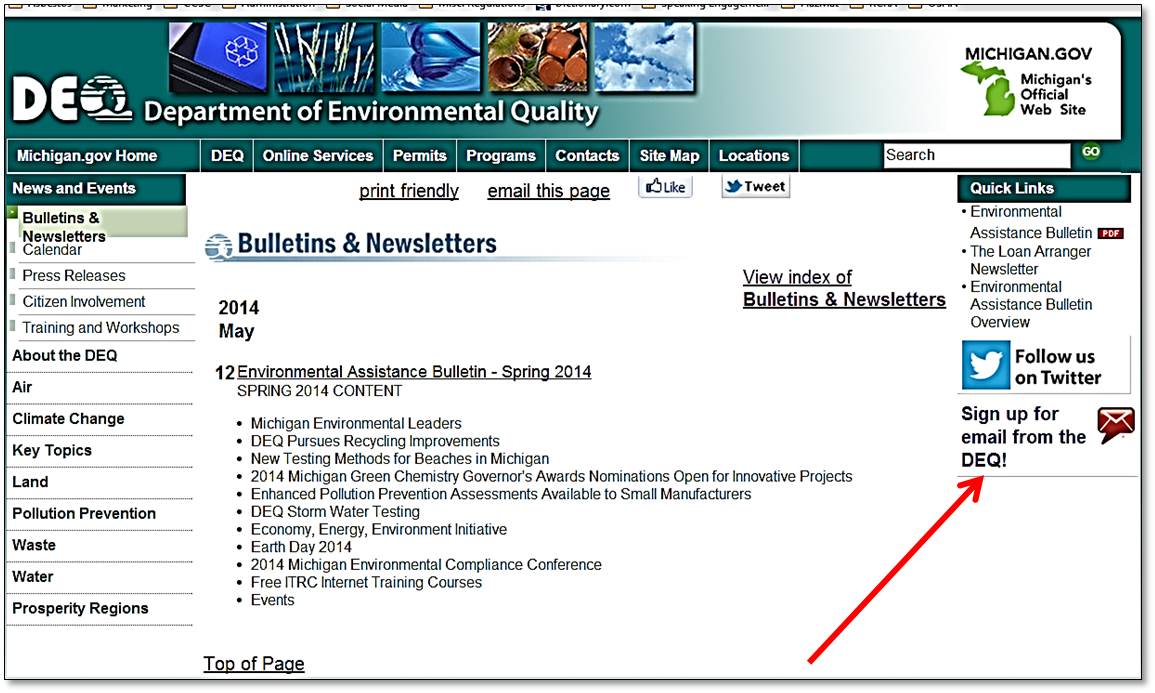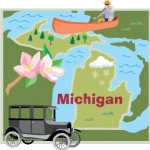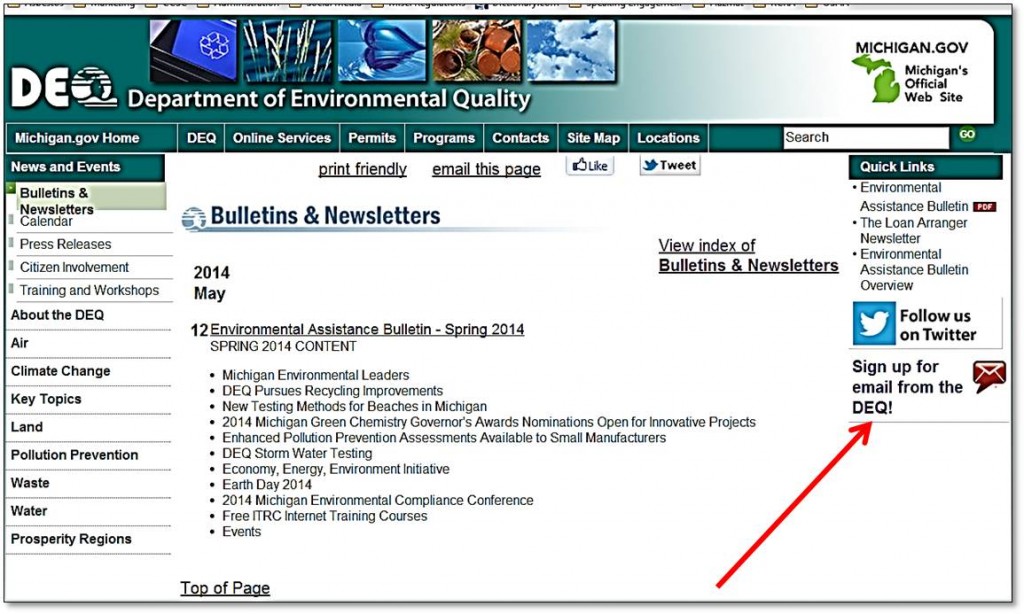June 2014 – Rules & Regulations, Proposed Rules, and Notices Regarding the Management of Hazardous Waste and the Transportation of Hazardous Materials
On its website the US Government Printing Office makes a wealth of Federal publications available for review and download; one of these is the Federal Register.
Published by the Office of the Federal Register, National Archives and Records Administration (NARA), the Federal Register is the official daily publication for rules, proposed rules, and notices of Federal agencies and organizations, as well as executive orders and other presidential documents.
See below for a brief summary of announcements in the Federal Register by the US EPA on the subject of Hazardous Waste and the Pipeline & Hazardous Materials Safety Administration (PHMSA), Federal Railroad Administration (FRA), and the Federal Aviation Administration (FAA) of the US DOT on the subject of Transportation of Hazardous Materials.
The Federal Register is a great way to look down the road and see potential changes to the regulations long before they are put into effect (sometimes The Rulemaking Process takes years before a final rule is issued, if ever). Knowledge of these potential changes provides you with several advantages:
- Additional time to modify your business operations to comply.
- Awareness of on what topics the regulatory agencies intend to focus their efforts.
- The ability to register your concerns, complaints, suggestions, etc. in order to modify the proposed rule before a final rule is issued. It can be done, really!
- Make changes to your training program to account for changes that become effective before the next training cycle.
- Alert you to the need to re-train your employees prior to their next scheduled training cycle, if necessary.
- Keep you abreast of changes to the regulations that affect your business and/or your industry group.
Please note that this is my best effort to identify the relevant announcements in the Federal Register that may be of interest to generators of hazardous waste and shippers of hazardous materials. I encourage you to review the list of Federal Register publications yourself to ensure regulatory compliance.
May 30, 2014 through June 30, 2014
EPA – Environmental Protection Agency:
Rules and Regulations:
Identification and Listing of Hazardous Waste
Pages 35290 – 35290 [FR DOC # 2014-14607]
Revisions to the Export Provisions of the Cathode Ray Tube (CRT) Rule
Pages 36220 – 36231 [FR DOC # 2014-14996]
Proposed Rules:
Spring 2014 Regulatory Agenda
Pages 34115 – 34123 [FR DOC # 2014-13130]
Definition of “Waters of the United States” Under the Clean Water Act; Extension of Comment Period
Pages 35712 – 35713 [FR DOC # 2014-14674]
Notices:
None
FAA – Federal Aviation Administration:
Rules and Regulations:
None
Proposed Rules:
None
Notices:
None
FMCSA – Federal Motor Carrier Safety Administration:
Rules and Regulations:
None
Proposed Rules:
None
Notices:
Qualification of Drivers; Exemption Applications; Epilepsy and Seizure Disorders
Pages 32014 – 32016 [FR DOC # 2014-12790]
Hours of Service of Drivers: Application of Illumination Fireworks, LLC and ACE Pyro LLC, for Exemption From the 14-Hour Rule During Independence Day Celebrations
Pages 36579 – 36581 [FR DOC # 2014-15043]
FRA – Federal Railroad Administration:
Rules and Regulations:
None
Proposed Rules:
None
Notices:
None
PHMSA – Pipeline and Hazardous Materials Safety Administration:
Rules and Regulations:
None
Proposed Rules:
None
Notices:
Office of Hazardous Materials Safety
Pages 31178 – 31179 [FR DOC # 2014-12438]
Office of Hazardous Materials Safety; Notice of Application for Special Permits
Pages 31179 – 31180 [FR DOC # 2014-12437]
Office of Hazardous Materials Safety; List of Applications Delayed More Than 180 Days
Pages 31405 – 31406 [FR DOC # 2014-12439]
Office of Hazardous Materials Safety; Notice of Applications for Modification of Special Permit
Pages 31406 – 31406 [FR DOC # 2014-12436]
Hazardous Materials: Notice of Availability of Draft Environmental Assessment and Request for Public Comment for a Special Permit Relating to the Transport of Precursor Chemicals From Syria in Port Arthur, Texas
Pages 33802 – 33803 [FR DOC # 2014-13685]
Office of Hazardous Materials Safety; Notice of Applications for Modification of Special Permit
Pages 35406 – 35407 [FR DOC # 2014-14182]
Office of Hazardous Materials Safety; Notice of Application for Special Permits
Pages 35407 – 35408 [FR DOC # 2014-14181]
Office of Hazardous Materials Safety
Pages 35408 – 35410 [FR DOC # 2014-14129]
Office Of Hazardous Materials Safety; List of Applications
Pages 35410 – 35411 [FR DOC # 2014-14183]
More Information can be helpful but it’s useless if you are not able to make sense of it. You must be able to determine how any changes to the rules and regulations (final or proposed) will affect your operations, and communicate the necessary information to your personnel. I can help you to do that.
Please contact for a free training consultation to determine your regulatory requirements and how training can help you to attain and maintain compliance with the regulations of the USEPA (and your state) and the PHMSA/USDOT.





